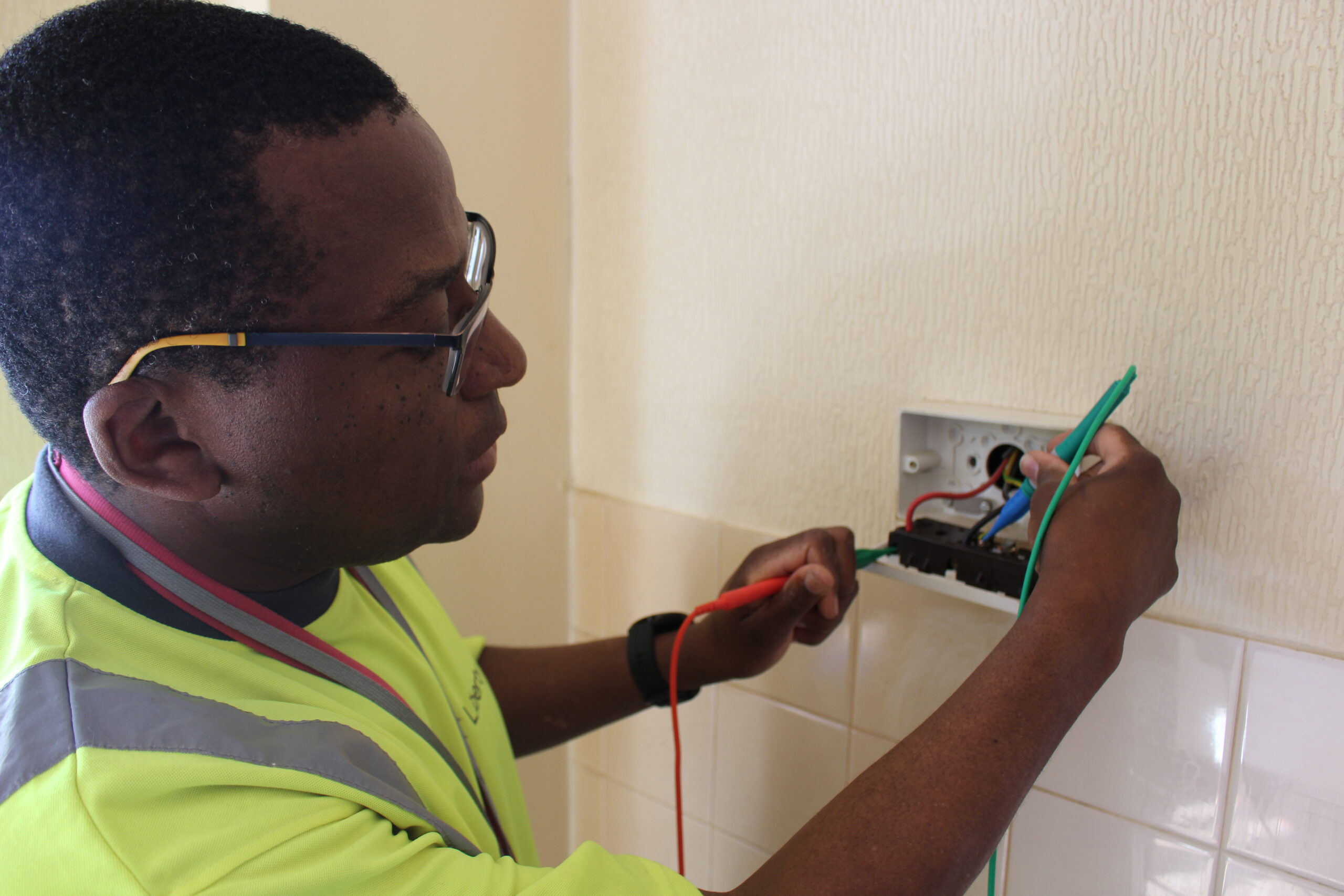With more than 50% of all accidental house fires in the UK being caused by electricity it’s critical that you know your assets are safe.
As part of the Code of Practice for the Management of Electrotechnical Care in Social Housing we provide electrical installation condition reports (EICR) fixed wire testing and electrical safety certification.
Safety is at the forefront of what we do, and we work with landlords to ensure the wellbeing of their tenants by ensuring their home is electrically safe. This includes making sure that electrical appliances, wires and fuse boxes are correctly installed and working properly.
Following an EICR test, if any observation is coded ‘Code 1 (C1)’ at the time of inspection, our engineer will ensure the hazard is made safe before leaving the property. For example, making sure plug sockets are not damaged and in a safe condition. Any other codes will be reported to you to take further action.
With more than 50% of all accidental house fires in the UK being caused by electricity it’s critical that you know your assets are safe.
As part of the Code of Practice for the Management of Electrotechnical Care in Social Housing we provide electrical installation condition reports (EICR) fixed wire testing and electrical safety certification.
Safety is at the forefront of what we do, and we work with landlords to ensure the wellbeing of their tenants by ensuring their home is electrically safe. This includes making sure that electrical appliances, wires and fuse boxes are correctly installed and working properly.
Following an EICR test, if any observation is coded ‘Code 1 (C1)’ at the time of inspection, our engineer will ensure the hazard is made safe before leaving the property. For example, making sure plug sockets are not damaged and in a safe condition. Any other codes will be reported to you to take further action.


Expert knowledge
We provide a rigorous end-to-end testing process to match your needs. Our expert teams provide specialist knowledge and advice to ensure a technically compliant, safety focused delivery.Supporting your void turnaround process
We’re specialists in social housing, so are experienced in delivering the inspections and tests required to confirm that the electrical installations in a void property are safe for your next tenant. We’ll work with you to ensure any required remedial works are completed, and that you’re made aware of any advisory actions.
Helping you gain access
We work closely with all clients to ensure adequate notice is provided to tenants about appointments, and to ensure they understand why an electrical safety check is needed in their home. We follow best practise guidance on gaining access and work with clients’ teams where necessary to gain access to homes to make sure they’re safe.
EICR stands for electrical installations condition report. It is a formal document produced by a trained electrician following a comprehensive assessment of electrical systems within any domestic, commercial and industrial property.
All rented properties in the private and social housing sector require an EICR based on latest regulations where all electrical installations and tests should be in good working order.
An EICR has five main purposes:
- Ensure all electrical installations on the property are safe
- Identify any damage and wear and tear that might affect the tenant in a property
- Find components of an electrical insulation that do not meet the correct regulations
- Highlight which electrical appliances are most likely to cause shocks and fires
- Records the condition of an electrical insulation to be used in future inspections
According to the Code of Practice for the Management of Electrotechnical Care in Social Housing it is recommended that the electrical installation in a domestic tenanted property is inspected and tested at least every five years.


